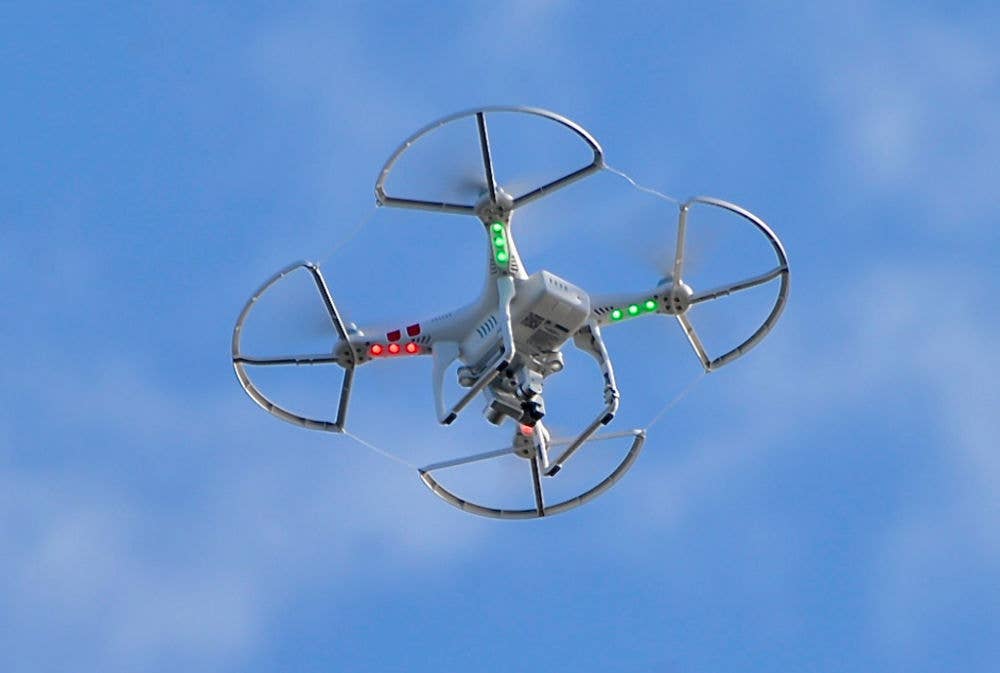
The FAA will soon begin accepting applications for the remote pilot certificate necessary to operate drones weighing more than half a pound. Frankie Fouganthin/Wikipedia Creative Commons
Operators of drones weighing more than half a pound need to earn an FAA remote pilot certificate. The only exception is recreational operators. The FAA begins accepting applications for the new Part 107 remote pilot certificate August 29. The agency's recreation versus commercial operator decision tree should get applicants headed in the right direction.
Remote pilot applicants must pass an FAA knowledge test at an approved knowledge-testing center, where the cost is expected to run approximately $150. The agency has created a Remote Pilot Knowledge Test Guide to assist in passing the exam. Sample test questions are also available on the FAA website.
At first glance, the sample knowledge test questions look pretty simple for anyone who already holds a pilot certificate. The sticking point is that operator applicants that already possess a pilot certificate are allowed to skip the knowledge exam. To someone new to aviation however, questions like this might not be quite so easy. Here are some sample questions and corresponding multiple choice answers.
Q: When operating an unmanned airplane, the remote pilot should consider that the load factor on the wings may be increased anytime, "the CG is shifted rearward to the aft CG limit, or the airplane is subjected to maneuvers other than straight and level flight, or the gross weight is reduced.
Q: When adapting crew resource management (CRM) concepts to the operation of a small UA, CRM must be integrated into, "the flight portion only, or all phases of the operation, or the communications only."
Once applicants pass the knowledge test, they'll head to the FAA's Integrated Airmen Certification and Rating Application (IACRA) site. The agency publishes an IACRA guide that's worth reading before the somewhat vexing application process.
Within 10 days following the IACRA application, the operator should receive instructions for printing out a temporary airman certificate, with the permanent certificate arriving in the mail after a background check. There are no details on the background check yet from the FAA, except that it’s expected to be free. In order to continue using the new certificate, remote pilots will need to pass a recurrent knowledge test every two years.
Remote pilot applicants who already hold a pilot certificate and have passed a flight review within the past 24 months may skip the knowledge test, but must complete the remote pilot training course. They'll also need to verify their identity through a FSDO or DPE before receiving their temporary certificate.

Subscribe to Our Newsletter
Get the latest FLYING stories delivered directly to your inbox






